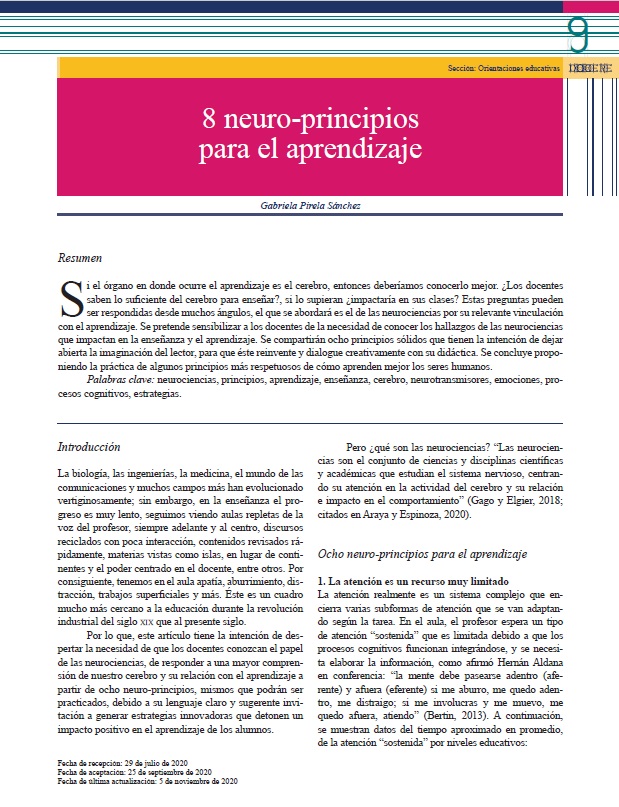8 Neuro-Principles for Learning
DOI:
https://doi.org/10.33064/2020docere233103Keywords:
neurosciences, principles, learning, teaching, brain, neurotransmitters, emotions, cognitive processes, strategiesAbstract
If the organ in which the learning occurs is the brain, then, we should know it better. Do the teachers know enough about the brain in order to teach? if they knew, would it impact their classes? These questions can be answered from many perspectives, the one that will be explored is neurosciences because of its relevant bond with learning. The purpose is to sensitize teachers about the need of knowing the neurosciences findings that impact in teaching and learning. Eight solid principles will be shared with the intention of leaving the reader´s imagination open, so they can reinvent and dialogue creatively with their didactic. It concludes with the proposal of practicing some more respectful principles on how humans learn better.
Translated by Rafael Guzmán de Luna
Downloads

Downloads
Published
How to Cite
Issue
Section
License
Esta obra está bajo una Licencia Creative Commons Atribución-NoComercial-CompartirIgual 4.0 Internacional.
El lector y/o usuario que utilice el material publicado en la revista DOCERE de la Universidad Autónoma de Aguascalientes, deberá en todos los casos: a) Reconocer la autoría del material utilizado, proporcionando un enlace a la licencia, además de indicar sí se han realizado cambios al material; b) Queda prohibido utilizar el material proveniente de la revista DOCERE, con finalidad comercial y, C) En los casos en los que se realice la remezcla, transformación o creación, a partir del material publicado de la revista DOCERE, se deberá dar reconocimiento de los derechos que correspondan a la Universidad Autónoma de Aguascalientes, en su carácter de titular de la materia protegible utilizada. En caso de infracción a lo antes dispuesto, el lector y/o usuario, se hará acreedor a las sanciones que establece la legislación de la materia.












